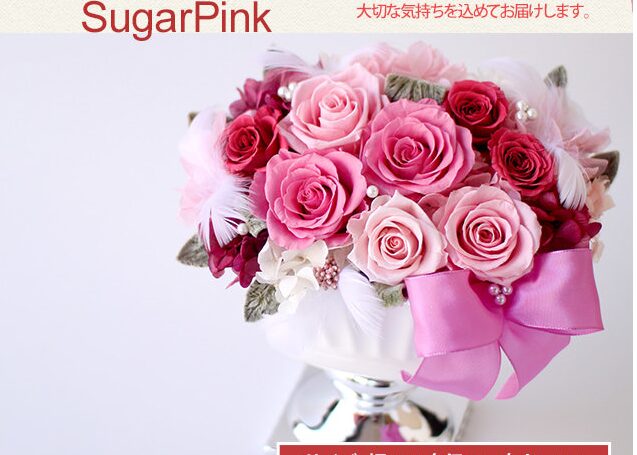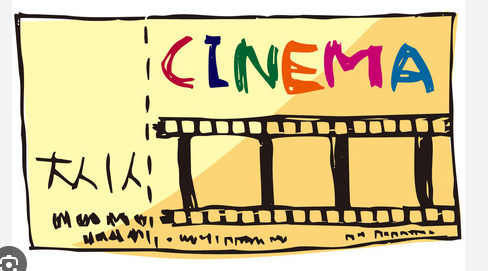
### 1-1. 煤払い:12月13日(金)に関する雑学
皆さん、「煤払い」って知っていますか?この特別な日は、毎年12月13日に行われる、いわば日本の「年末大掃除」のようなものです。名前の通り、古い煤を払い落とし、新しい年を迎える準備を整えるんです。実は、この日は昔から火の神様に感謝する日でもありました。火を使うことが多かった昔の人々にとって、煤は厄介な存在だったんですね!
さらに面白いのは、煤払いの日には家の中だけでなく、神社やお寺でも同様の作業が行われます。お掃除をすることで、清められた場所に新しい年を迎える神様が訪れるという考え方なんですよ。なんだか、気分が上がりますね!この日までに、掃除を済ませてしまえば、運気も上がるかもしれませんよ。
そして、この日には特別な風習がある地域もあります。たとえば、一部の地域では、「煤払い」を終えた後にお餅を焼いて食べることが習慣になっています。これも、神様への感謝の気持ちを込めているんです。煤払いをきっかけに、地域ごとの楽しい習慣を知るのもいいですね!
### 1-2. Fun Fact about Black Dust Clearing: December 13 (Friday)
Do you know about “Kebarai,” or Black Dust Clearing? This special day is celebrated every year on December 13, and it’s like Japan’s “end-of-year cleaning” extravaganza! As the name suggests, people sweep away old soot to get ready for the new year. Interestingly, this day has also been a time to express gratitude to the gods of fire. In a time when fire was an essential part of daily life, soot was a pesky inconvenience, to say the least!
What’s even more fascinating is that on this day, not only do households get a thorough cleaning, but shrines and temples participate too! By cleaning these sacred spaces, they believe that it invites the deities to come and bless the newly cleared areas for the upcoming year. Isn’t that uplifting? Completing your cleaning before this day might just bring you a whole wave of good luck!
In some regions, there are special customs tied to this day. For example, in certain places, it’s customary to roast and eat rice cakes after finishing the Black Dust Clearing. This is another way to show gratitude to the gods. Discovering unique local customs during Kebarai can add a fun twist to your year-end celebrations!
### 2-1. 煤払い:12月13日(金)に関する雑学
実は、煤払いは単なる掃除ではなく、古くから伝わる大切な儀式なんです!昔の人々は、この日を「煤払いの日」として、五穀豊穣や無病息災を願って煤を払い落としていました。つまり、掃除をすることで運気を上げるだけでなく、農作物の実りや健康をも祈願する、まさに一石二鳥のイベントなのです。
この日には、家の中の煤を払い、外に出る際には「煤の神様よ、さようなら!」と声をかけるという習慣もあったそうです。なんともユニークなアイディアですよね!さらに、煤払いが終わると、家族全員で囲炉裏を囲んで食事を楽しむのも、地域によっては大切な風習です。家族の絆を深める素敵な時間ですね!
また、実は煤払いの日には「冬至」にも通じる意味があります。冬至は一年で一番日が短い日ですが、この煤払いの日を境に、少しずつ日が長くなっていくのです。これも新たな始まりを象徴していると言えますね!煤払いで運気を上げて、新しい年を迎える準備をしましょう!
### 2-2. Another Fun Fact about Black Dust Clearing: December 13 (Friday)
Did you know that Kebarai isn’t just a simple cleaning ritual but a significant ceremony passed down from ancient times? People used to celebrate this day by sweeping away soot to pray for bountiful harvests and good health. So, not only does it elevate your luck by cleaning, but it also invokes blessings for crops and well-being—a two-in-one event!
On this day, after sweeping away soot from the house, it was common to shout, “Farewell, soot gods!” as one stepped outside. Isn’t that such a quirky tradition? Moreover, once the cleaning is done, in many regions, families gather around the hearth to enjoy a meal together. It serves as a wonderful occasion to strengthen family bonds!
Interestingly, Kebarai also aligns with the winter solstice. The winter solstice is the shortest day of the year, and Kebarai marks the point when days start getting longer again. This represents a new beginning! Let’s boost our luck with Kebarai and get ready to welcome the new year!
### 3-1. 煤払い:12月13日(金)に関する雑学
煤払いは、ただの掃除以上の意味を持っています!実は「煤払い」の風習は、家の浄化だけでなく、過去の悪運を取り除くことも目的としているんです。これは、日本の「水遣り」や「お祓い」に近い精神性を持っていて、物理的な掃除が精神的なリセットにつながると言われています。まさに、心と体を同時に整えるイベントですね!
また、歴史が長いことから、地域によっては独自の煤払いのスタイルや風習があるんです。たとえば、ある地域では、特別に作られた「煤払い米」を神様に供え、それを食べる習慣があるとか!地域ごとの文化を楽しみながら、個性的な煤払いを体験するのも素晴らしいですね。
そして、「煤払い」を終えた後は、さっぱりとした気持ちで新年を迎えることができるのが最大の魅力。この日を境に新しい年に向けた期待感が高まります。掃除をすることで、心も晴れ渡ることでしょう!
### 3-2. A Fun Fact about Black Dust Clearing: December 13 (Friday)
Kebarai serves a purpose beyond mere cleaning! In fact, the ritual not only purifies the home but also aims to dispel past misfortunes. It shares a similar spiritual essence to Japan’s “water sprinkling” and “purification ceremonies,” suggesting that physical cleaning leads to a mental reset. What a wonderful event to harmonize both mind and body!
With such a long history, different regions have their own unique styles and customs concerning Kebarai. For instance, in some areas, there is a tradition of making special “Kebarai rice” to offer to the gods, which families then consume. Experiencing diverse local customs during Kebarai can truly be a fantastic cultural adventure!
Moreover, finishing the Kebarai leaves you with a fresh spirit, ready to embrace the new year! The anticipation for the upcoming year heightens as you clean your space. It’s a perfect way to clear your mind as well!
### 4-1. 煤払い:12月13日(金)に関する雑学
煤払いは、単なる掃除ではなく、農業や生活習慣に密接に関連した伝統行事です。古代から、家の煤を払い、神様を迎え入れるための準備をすることで、豊作を祈願してきたのです。この良き伝統は、特に地方の農村に根付いています。煤を掃除すること自体が、田畑の豊かさにつながっていたんですね!
面白いことに、煤払いには各地での個性的な競技やイベントも存在します!たとえば、ある町では、煤を清めた後に行われる「煤払い祭り」があり、地元の人たちが集まってさまざまな伝統芸能を披露します。このような祭りは、地域を活気づける素晴らしい機会です!
最後に、実は煤払いをすることで、不運を払うだけでなく、家族の絆を深めることにもつながります。家族や友人と一緒に掃除をすることで、楽しい思い出が作れますよ!この日を通じて、人とのつながりを感じながら新年を迎えましょう!
### 4-2. A Fun Fact about Black Dust Clearing: December 13 (Friday)
Kebarai is not just a cleaning session; it’s a traditional ceremony deeply connected to agriculture and daily life. Since ancient times, people have swept away soot to prepare for welcoming deities and praying for bountiful harvests. This beautiful tradition is especially rooted in rural areas, where cleaning rituals were directly linked to the fertility of farmlands!
Interestingly, Kebarai also sparks unique competitions and events in various regions! For instance, in one town, there’s a “Kebarai Festival,” where locals gather to showcase various traditional performances after the cleaning is done. Such festivals are fantastic opportunities to invigorate the community!
Lastly, engaging in Kebarai doesn’t just ward off misfortune; it also deepens family bonds. Cleaning together with family or friends can create joyful memories! Let’s embrace this day as we connect with others and welcome the new year with open arms!
### 5-1. 煤払い:12月13日(金)に関する雑学
煤払いは、ただのお掃除日ではなく、実は年末の「心のリセット」を意味するとも言われています。この日は、各家庭が一年間の汚れや厄を清めることで、心も新たに新年を迎えられるわけです。掃除ができると、さあ、新たなチャレンジが待っている!というワクワク感が増しますね!
また、地域によっては、この日の掃除を手伝うために「煤払い隊」なるグループが結成され、みんなで力を合わせて掃除をすることもあります。共に汗を流すことで、仲間意識が強まり、支え合うことの大切さを再認識できるんです!協力する楽しさも味わえるなんて、まさに一石二鳥ですね!
最後に、この日が過ぎると、もう年末の雰囲気が漂い始めます。煤払いで新たに生まれ変わった心地で、年末のイベントやカウントダウン、初詣へと向かうことができるのです。さあ、煤払いを終えて、明るい未来に飛び込もう!
### 5-2. A Fun Fact about Black Dust Clearing: December 13 (Friday)
Kebarai isn’t just a day for cleaning; it symbolizes a “mental reset” for the year’s end! On this day, households tidy up to cleanse away dirt and misfortune, allowing us to greet the new year with a fresh mindset. Once everything is cleaned, it’s like, “Bring on the new challenges!” The excitement builds up!
In some regions, fascinatingly, groups dubbed “Kebarai squads” are formed to help with the cleaning, collaboratively tackling tasks together. This shared effort strengthens camaraderie and reinforces the importance of mutual support! It’s a win-win situation to enjoy both teamwork and fun!
Finally, once this day passes, the year-end atmosphere starts to set in. With a rejuvenated spirit from Kebarai, we can dive into year-end events and New Year’s festivities with enthusiasm! Let’s wrap up the cleaning and leap into a bright future!


